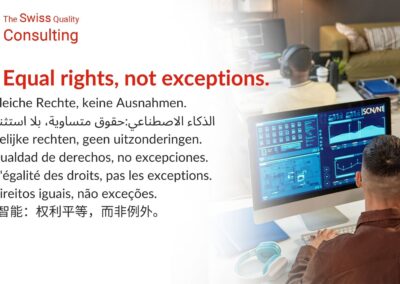Revolutionizing Land Registry Systems
Blockchain technology is set to revolutionize land registry systems, offering unparalleled security and transparency. In Saudi Arabia and the UAE, where property transactions are significant economic activities, adopting blockchain for land registries can drastically reduce fraud and ensure property rights. The decentralized nature of blockchain ensures that every transaction is recorded in a tamper-proof ledger, making it nearly impossible for fraudulent activities to go unnoticed. This advancement is particularly crucial in regions where rapid urban development and real estate investments are prominent.
Building Trust in Property Markets
Trust is a cornerstone of successful property markets. In Riyadh and Dubai, implementing blockchain land registry systems can enhance the credibility of real estate transactions. By providing a transparent and immutable record of property ownership, blockchain ensures that buyers and sellers can confidently engage in transactions. This technology can also streamline the process of verifying property titles, reducing the time and cost associated with due diligence. For business executives and entrepreneurs, the enhanced trust and efficiency can lead to increased investments and growth in the property sector.
Improving Efficiency in Property Management
Efficiency in property management is critical for business success. Blockchain can automate various aspects of property transactions, from registration to title transfers. In Saudi Arabia and the UAE, where the real estate market is a key economic driver, this automation can lead to significant cost savings and operational efficiencies. Smart contracts, which are self-executing agreements on the blockchain, can ensure that all conditions of a property transaction are met before the transfer of ownership is finalized. This reduces the need for intermediaries and minimizes the potential for errors, making the entire process more efficient.
Integrating Blockchain with Existing Systems
Successful implementation of blockchain land registries requires seamless integration with existing systems. In regions like Saudi Arabia and the UAE, where digital infrastructure is advanced, this integration can be achieved with strategic planning and collaboration. Governments and private sector stakeholders must work together to ensure that blockchain solutions are compatible with current land registry databases and processes. Consulting firms specializing in blockchain technology can provide the necessary expertise to navigate these complexities and ensure a smooth transition.
Training and Educating Stakeholders
The transition to blockchain land registries also involves educating all relevant stakeholders, including government officials, real estate professionals, and the general public. In Riyadh and Dubai, where digital literacy is relatively high, targeted training programs can facilitate the adoption of blockchain technology. Executive coaching services can be instrumental in this regard, offering tailored training to leaders and managers overseeing the implementation. Effective communication strategies are essential to ensure that stakeholders understand the benefits and functionalities of the new system, fostering a supportive environment for its adoption.
Addressing Legal and Regulatory Considerations
Legal and regulatory considerations are paramount in the implementation of blockchain land registries. Governments in Saudi Arabia and the UAE must ensure that the use of blockchain technology aligns with existing property laws and regulations. This may involve updating legal frameworks to accommodate the new technology. Additionally, robust data privacy and security measures must be established to protect sensitive information. By collaborating with legal experts and regulatory bodies, governments can create a supportive environment that facilitates the adoption of blockchain land registries while ensuring compliance with all relevant laws.
Conclusion
Blockchain land registries represent a significant advancement in property management, offering enhanced security, transparency, and efficiency. For Saudi Arabia and the UAE, adopting blockchain for land registries can address fraud, build trust in property markets, and streamline property transactions. By integrating blockchain with existing systems, educating stakeholders, and addressing legal and regulatory considerations, these nations can lead the way in modernizing property management and setting a global example for the use of blockchain technology in public administration. The future of property transactions lies in the adoption of blockchain technology, promising a more secure and transparent real estate market.
#BlockchainLandRegistry #BlockchainTechnology #PropertyRights #SaudiArabia #UAE #Riyadh #Dubai #ChangeManagement #ExecutiveCoaching #EffectiveCommunication #BusinessSuccess #ManagementConsulting #ArtificialIntelligence #TheMetaverse #GenerativeAI #LeadershipSkills #ProjectManagement























